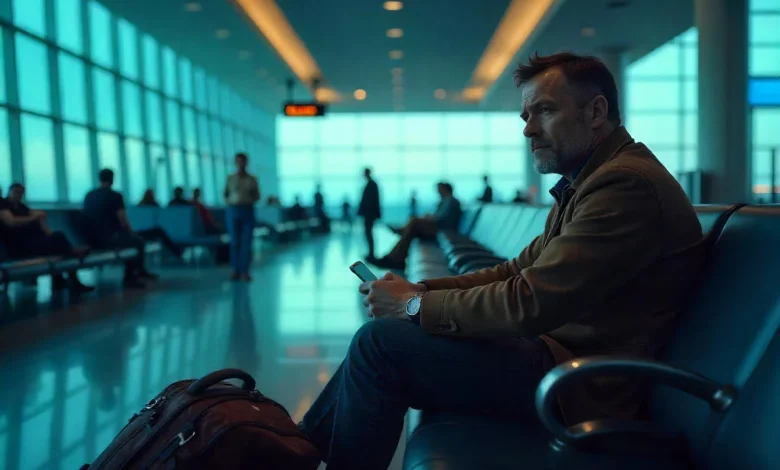Thousands of Travelers Abandoned across Australia as Passengers in Sydney, Melbourne, Brisbane and more Experiences 40 Flight Cancellations and 811 Delays by Qantas, Jetstar and others, New Update

Published on
November 24, 2025
Major travel chaos hit Australia today. Across six major airports, thousands of passengers faced severe delays and cancellations. Specifically, 40 flights were grounded and 811 services experienced delays, creating massive operational strain. The disruption focused on major hubs like Sydney, Melbourne and Brisbane. Smaller airports in Adelaide, Gold Coast and Canberra also reported significant problems. Consequently, flagship carriers Qantas and Jetstar, along with other airlines, shouldered the primary impact. In fact, Melbourne Tullamarine recorded the highest delay figures, while Sydney saw the most cancellations. This widespread failure severely hampered travel plans nationwide.
The bulk of the day’s travel disruption was concentrated across the three busiest gateways. Melbourne Tullamarine was cited as the most heavily affected facility, with 10 total cancellations recorded, alongside a substantial figure of 292 total delays. At Sydney Airport, the highest number of cancellations for any single airport was registered, with 16 flights having been grounded. This was complemented by 179 total delays at the facility, cementing its position as a major epicenter of the nationwide travel difficulty.
The third major operational hub, Brisbane Airport, also saw its services heavily restricted. In Brisbane, 7 total cancellations were recorded and 223 total delays were experienced, adding considerable pressure to the aviation network in Queensland.
Beyond the key eastern seaboard hubs, regional and southern Australia was also affected. Adelaide Airport registered 3 total cancellations and 59 delays. The Gold Coast facility saw 2 cancellations and 30 delays. Finally, Canberra Airport reported 2 cancellations and 28 total delays. The combined figures illustrate the broad geographical scope of the event, with nearly all major capital cities being affected by the instability.
The operational challenges were demonstrably shared among the major Australian air carriers and their subsidiaries. Qantas, the national carrier, along with its subsidiary QantasLink, was impacted across all six listed airports, reflecting its expansive network coverage across Australia. A total of 14 cancellations were attributed to Qantas across Sydney, Melbourne Tullamarine, Brisbane, Adelaide and Canberra. Furthermore, Qantas was responsible for 155 delays across these same five airports. QantasLink was additionally cited for 2 cancellations and 23 delays, specifically affecting Melbourne Tullamarine and Brisbane services.
The low-cost carrier Jetstar was identified as a major contributor to the day’s disruptions. Jetstar services were impacted at five of the six airports, with a total of 14 cancellations being attributed to the airline across the Sydney, Melbourne, Brisbane, Adelaide and Gold Coast facilities. A significant 154 delays were also logged against Jetstar across the same network of airports, highlighting the difficulties experienced by budget travelers.
Virgin Australia also experienced a considerable operational toll. The airline was cited for disruptions at both Sydney and Melbourne Tullamarine, the two largest hubs. Virgin Australia was responsible for 10 cancellations (5 at each airport) and 118 delays (39 at Sydney, 79 at Melbourne Tullamarine).
Beyond these specific figures, delays were being experienced by several other Airlines.
The scale of this disruption is anticipated to place considerable strain on the tourism and logistical infrastructure in the affected capital cities. The high volume of delayed and canceled flights means that onward travel and accommodation bookings were significantly compromised across Sydney, Melbourne and Brisbane. The delayed arrival of inbound international and domestic travelers means that hotel and transportation services are likely to be heavily over-subscribed as flight recovery schedules are implemented.
Furthermore, the disruptions in key tourism gateways such as Gold Coast and the capital city of Canberra suggest that traveler confidence may be tested, particularly concerning time-sensitive itineraries. The successful management of such a large-scale event is often measured by the speed at which normal operational tempo is restored across the national network. The necessity for airlines to manage the re-accommodation of thousands of passengers suggests that flow-on effects will be experienced for several days, placing an operational burden on airports like Adelaide and the major hubs of Sydney and Melbourne as they work to clear the backlogs.
In light of the confirmed 40 cancellations and 811 delays affecting services operated by Qantas, Jetstar, Virgin Australia and QantasLink, immediate action is required by all affected passengers. It is imperative that all passengers with booked travel to or from Sydney, Melbourne, Brisbane, Adelaide, Gold Coast or Canberra immediately contact their respective carrier.
The sheer volume of delayed and canceled flights across Australia dictates that patience must be exercised as the airlines manage the rebooking and recovery process. Information concerning alternative travel options, including rebooked flights or potential refunds, is typically being communicated directly by the affected carriers. Passengers should ensure that all contact details on their booking are up-to-date, as this remains the primary method by which operational changes are conveyed during periods of widespread aviation instability. The recovery phase is expected to be a measured process as the airlines work to restore stability across their networks.
-The information provided is sourced from FlightAware.




